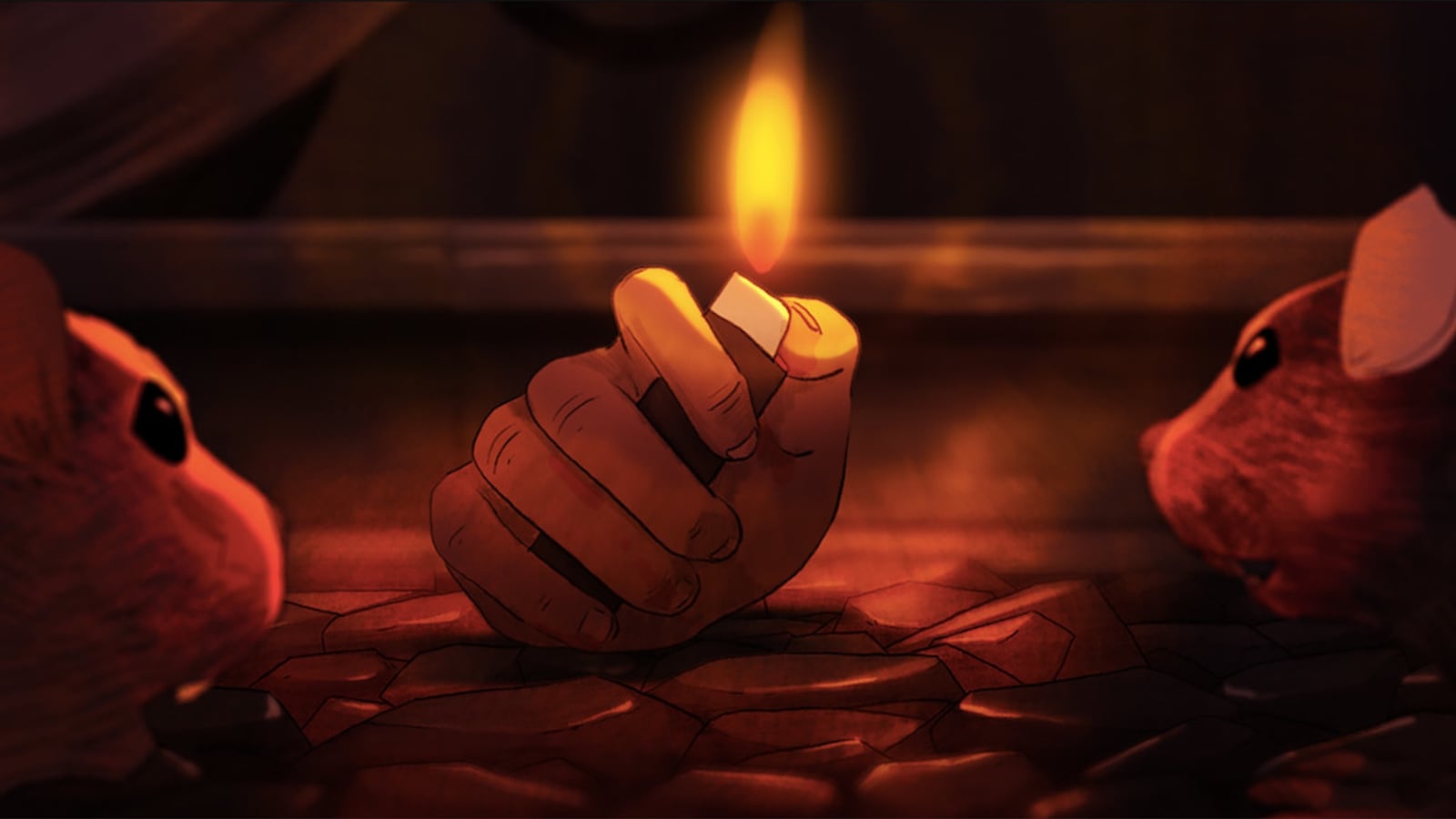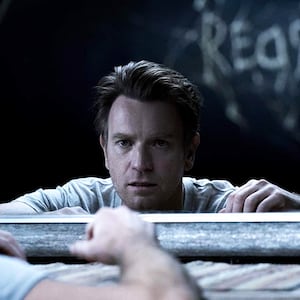Formally daring, narratively inventive and poignantly profound, I Lost My Body is an invigorating slap to the face of modern feature animation. That may sound like hyperbole, especially in an era in which Pixar continues to churn out moving and thoughtful mass entertainments, but French director Jérémy Clapin’s debut remains a cut above almost any similar recent release. A beguiling, challenging saga about life’s big questions that’s also in tune with the way the world feels, looks and sounds, it’s a story unlike any other.
I Lost My Body’s title is both figurative and literal. The protagonist of Clapin’s animated tale (in theaters Nov. 15, and on Netflix Nov. 29) is a severed hand that awakens in a refrigerator and promptly tumbles to the floor alongside a rogue eyeball. It’s a moment of birth, and awakening that’s as startling for the appendage as it is for us. And though this incident is also more than a bit comical—thanks to the sheer disbelief it engenders—it’s anything but cartoonishly juvenile. The Addams Family’s Thing this most certainly is not.
It’s no great mystery who this five-fingered appendage belongs to, since I Lost My Body opens with fragmented images of a young man lying in blood in the aftermath of an apparent accident. His name, we soon learn, is Naoufel (voiced by Hakim Faris). First, however, we’re presented with a flashback to his youth, during which he’s told by his father that the best way to catch a fly is to foresee where it’s headed, and to reach for that spot rather than the location the insect currently occupies. It’s a lesson about achieving present goals by anticipating the future—one of many thematic undercurrents that will prove relevant to the subsequent action.
While we know Naoufel is the hand’s rightful owner, Clapin builds immediate mystery from the question of how the two were separated. The director achieves this, in part, by structurally trifurcating his film, flashing back and forth between the hand’s journey, Naoufel’s adolescence (which is delineated by a black-and-white color palette), and his recent goings-on as a pizza delivery boy in Paris, where the Moroccan-born teen has moved in the aftermath of his parents’ deaths. Further linking these concurrent strands are a collection of recurring visual motifs, including buzzing flies and, unsurprisingly, hands, as Clapin’s imagery creates overt and subtle associations via the sight of Naoufel’s and others’ intact hands, be they playing the piano, opening doors, or—as a child—holding a microphone out a moving car’s window to capture the natural sounds that surround him.
I Lost My Body’s immersive and pressing soundscape—full of vibrant clacking, screeching, barking and yelling—enhances the action’s immediacy. Clearly intent on reuniting with Naoufel, the hand scampers and skitters from one perilous situation to another, and sometimes in a gruesome manner, as when it grabs onto a pigeon to avoid falling from a gutter, and accidentally snaps the bird’s neck. Danger lurks everywhere for the hand: on subway tracks populated by hungry rats; in the street as it bangs into passing vehicles while clutching a windswept umbrella; and even in a blind man’s home, where a guide dog transforms from friendly to vicious at a moment’s notice. Clapin brings this odyssey to life via an animation style that’s alternately swift, smooth, and herky-jerky stylized, and through up-close-and-personal compositions (often from the hand’s POV) that never fail to find new, ingenious angles from which to spy the proceedings, thereby further engendering engagement and empathy.
The hand’s quest is a search for himself, and his longing to be complete is shared by lonely, pre-dismemberment Naoufel, whose world is upended by a rainy-night intercom encounter with a customer named Gabrielle (Victoire Du Bois) whom he later attempts to meet in person, and woo, by following her through Paris’ streets and then getting a job with her woodworking uncle. Like his hand, Naoufel wants to be whole, and Clapin reveals the precise details of why he isn’t—a state of affairs having to do with his parents’ tragic demise, and the (unspoken) cultural dislocation of his present circumstances—through intertwined incidents, flashbacks and dreams populated by goats, space-suited astronauts and those pesky flies. I Lost My Body is a sensorial swirl of movement and memories, scattered between distinct—and yet somehow also deeply bonded—points in time.
Nothing spied in I Lost My Body is accidental; from homemade igloos and archaic tape recorders to broken bottles and big headphones, everything Clapin depicts is part of a larger, interconnected tapestry. The resultant impression is one of fate conspiring to bring about unanticipated events—a notion related to Naoufel’s own desire to subvert destiny by performing a wholly unexpected act. Whether we’re all traveling along a fixed path, or capable of exercising agency, looms large over the film, right up to a final scene that finds Naoufel taking a great, courageous leap of faith. Still, the writer/director refuses to provide concrete resolutions to the philosophical issues he raises. Even revelations about how Naoufel came to be one-handed, and the ultimate reunion between him and his appendage, play out with an unpredictable degree of grace and sorrow.
Freely—and almost instinctively—segueing between its three narrative threads, I Lost My Body casts an absorbing spell, aided by a Dan Levy score that blends electronic and orchestral components to entrancing effect. It’s a film to get lost in, swept up by its stunning aesthetics and then carried along by its intriguing ideas about providence, trauma, individuality and love. Romance certainly is in the air thanks to Naoufel’s pursuit of Gabrielle, but as with every other aspect of his superlative first feature, Clapin avoids wrapping up their affair in pat fashion. Instead, he opts for an ending that’s at once heartening and mournful, crushing and cathartic—an ambiguous state of affairs in which Naoufel, his hand, and also viewers are compelled to not sit idly by but, instead, to actively envision the future to come.


